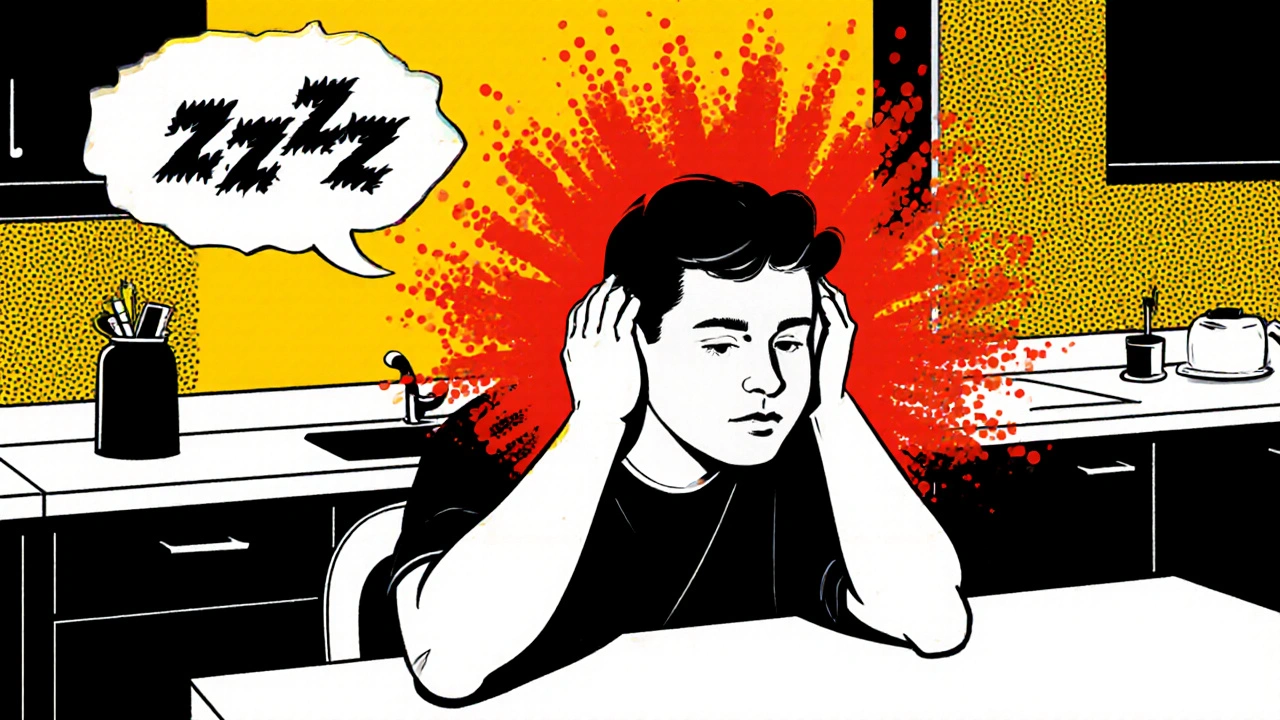Tinnitus: What It Feels Like and What You Can Do Now
Tinnitus is the name for noises you hear in your ears that others don’t — buzzing, ringing, hissing, or whooshing. It can be constant or come and go. For many people it’s annoying; for some it can mess with sleep, focus, and mood. The good news: you don’t have to just tolerate it. There are practical steps you can take right away and treatments your doctor can offer.
Common causes and red flags
No single cause fits everyone. The most common reasons are loud noise damage, age-related hearing loss, and earwax buildup. Certain medicines (some antibiotics, NSAIDs, chemotherapy drugs) can trigger or worsen tinnitus. Other causes include middle ear problems, TMJ issues, Meniere’s disease, and blood flow changes near the ear. Pulsatile tinnitus — a rhythmic thumping in time with your heartbeat — can signal vascular causes and deserves prompt medical review.
See a doctor quickly if your tinnitus starts suddenly, is only in one ear, or comes with hearing loss, dizziness, weakness, or severe headache. Those signs need an evaluation to rule out treatable problems.
Practical relief you can try today
First step: get a basic hearing check and ear exam. Removing earwax or switching a medication often helps. If there’s no clear cause, try these everyday strategies:
- Use background sound: a fan, quiet music, or a white-noise app can reduce the contrast between silence and the tinnitus noise, making it less noticeable, especially at night.
- Protect your ears: wear earplugs or earmuffs in loud places. One loud concert can make tinnitus worse for months.
- Sleep and stress: poor sleep and anxiety amplify tinnitus. Keep a regular sleep routine, limit evening caffeine and screen time, and try breathing or progressive muscle relaxation before bed.
- Limit triggers: for some people, caffeine, nicotine, and heavy alcohol make tinnitus louder. Try cutting them back to see if it helps.
- Manage focus and mood: cognitive-behavioral therapy (CBT) and counseling help many people stop reacting to the noise. That reduces distress even if the sound doesn’t go away.
Medical options include hearing aids (especially if you have hearing loss), sound-masking devices, tinnitus retraining therapy, and targeted therapies for specific causes. Some medications can ease sleep or anxiety related to tinnitus, but there’s no universal drug that cures it.
If tinnitus is bothering you daily, make an appointment with an ENT (ear, nose, and throat) doctor or an audiologist. Bring notes about when it started, what makes it better or worse, recent noise exposure, and a list of medicines you take. That information speeds up finding a useful plan.
Tinnitus can be frustrating, but many people learn to live well with it using simple changes and the right medical support. Start with a hearing check and small lifestyle changes, and ask for help when you need it.
Betahistine for Tinnitus Relief: How It Works & What to Expect

Explore how betahistine works, its evidence for tinnitus relief, dosing tips, side effects, and when it’s most effective in a clear, practical guide.
- October 17 2025
- Tony Newman
- 11 Comments
Tinnitus During Pregnancy: Expectations and Coping Strategies

Tinnitus, often described as a ringing in the ears, can be an unexpected challenge for many during pregnancy. Hormonal changes and increased blood flow might intensify this condition. These disruptions can turn an already demanding time into something even more stressful. Fortunately, there are simple ways to make it more manageable, including strategies for minimizing distractions and promoting relaxation.
- March 10 2025
- Tony Newman
- 10 Comments
